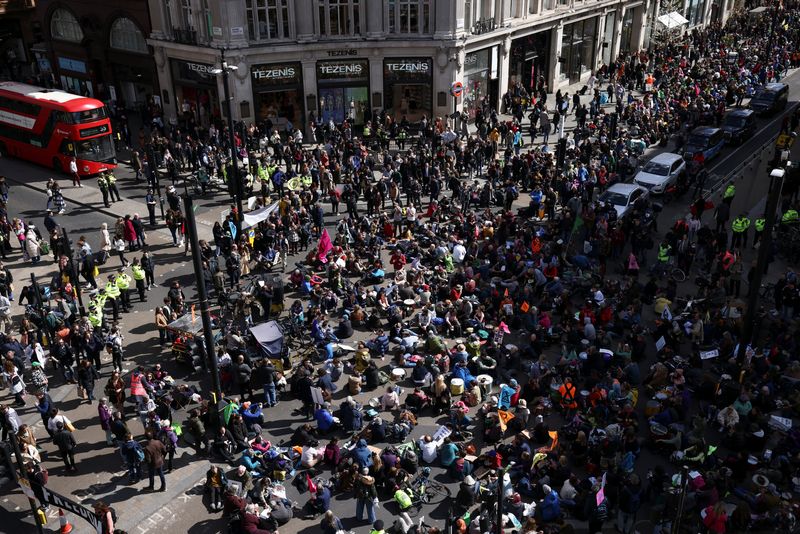By William James
LONDON (Reuters) - Prime Minister Rishi Sunak's government will on Monday announce new proposals to clamp down on protests, broadening the range of situations in which police in England and Wales are able to act to prevent serious disruption.
In recent years, protests, usually on environmental issues, have shut down large parts of central London and blocked traffic on key highways, leading to calls for the police to have more power to stop the disturbance.
The government passed legislation to address this in 2022, but is planning to go further with a new set of laws known as the Public Order Bill.
The bill was published last year and is currently in the final stages of debate in parliament. It has drawn heavy criticism from civil rights groups who say it is anti-democratic and gives police too much power.
The government wants to amend the Public Order Bill before it becomes law to broaden the legal definition of 'serious disruption', give police more flexibility, and provide legal clarity on when the new powers could be used.
"The right to protest is a fundamental principle of our democracy, but this is not absolute," Sunak said in a statement late on Sunday.
"We cannot have protests conducted by a small minority disrupting the lives of the ordinary public. It’s not acceptable and we’re going to bring it to an end."
The government says the new laws, if passed, will mean police can shut down disruptive protests pre-emptively.
"The police already have adequate powers to arrest people and move them on," Shami Chakrabarti, an opposition Labour member of the upper house of parliament which will consider the government amendments, told BBC radio.
"This, I fear, is about treating all peaceful dissent as effectively terrorism."

The bill already includes the creation of a criminal offence for those who seek to lock themselves to objects or buildings, and allows courts to restrict the freedoms of some protesters to prevent them causing serious disruption.
It builds on the Police, Crime, Sentencing and Courts Act, passed in April 2022, which sparked several large 'kill the bill' protests.
